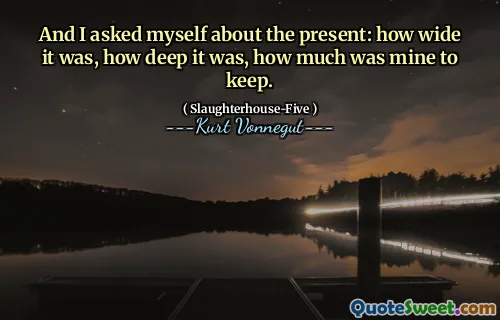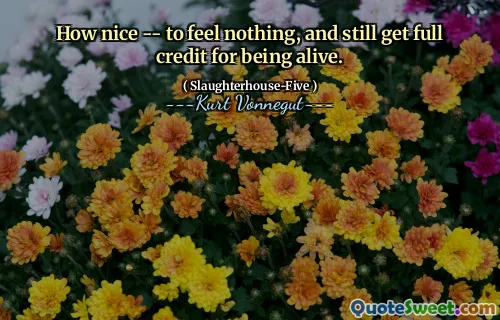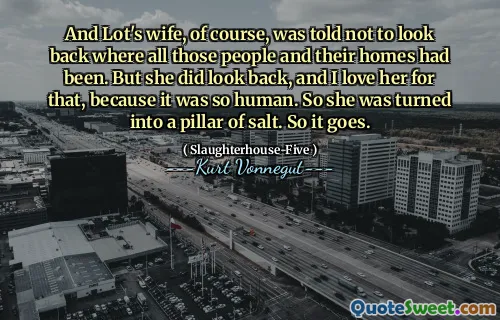
Every other nation has folk traditions of men who were poor but extremely wise and virtuous, and therefore more estimable than anyone with power and gold. No such tales are told by the American poor. They mock themselves and glorify their betters. The meanest eating or drinking establishment, owned by a man who is himself poor, is very likely to have a sign on its wall asking this cruel question: If you're so smart, why ain't you rich?
Kurt Vonnegut Jr. highlights a significant cultural difference in American attitudes toward poverty and wisdom in "Slaughterhouse-Five." While many cultures celebrate the virtues and wisdom of the poor, Americans often view poverty through a lens of self-deprecation and admiration for wealth. This suggests an ingrained belief that economic success equates to intelligence and worth, leading to a glorification of the wealthy and a dismissal of those who are struggling.
The statement, "If you're so smart, why ain't you rich?" exemplifies this harsh judgment of the poor, indicating that intelligence and virtue are not valued when lacking monetary success. This perspective reveals a societal tendency to measure one’s value and capabilities primarily by their financial status, diminishing the recognition of wisdom and morality that can exist irrespective of wealth. Vonnegut's critique serves to illuminate this troubling mindset within American culture.











